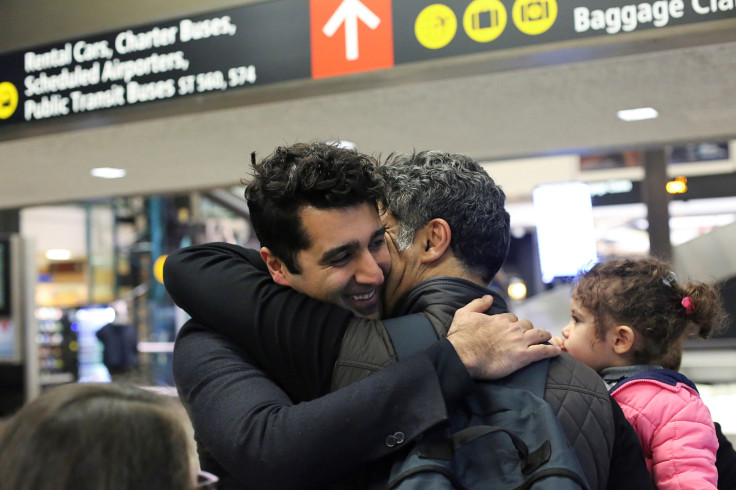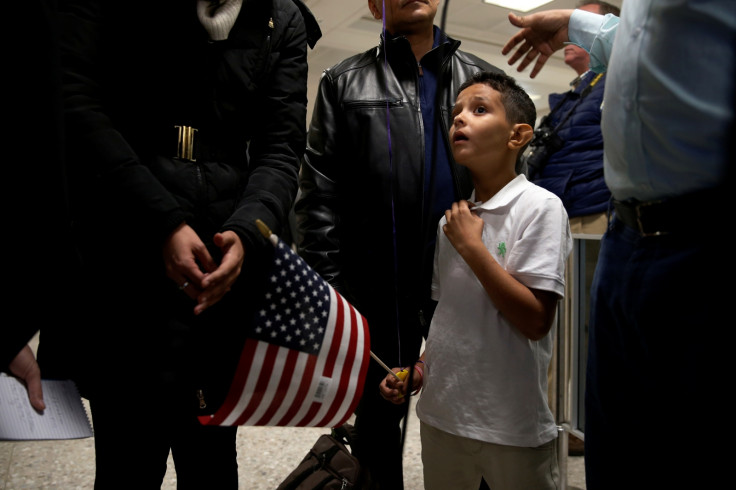What will happen when Trump's travel ban is replaced?
President's ban targeting Muslim-majority nations will see continuing court challenges, say lawyers.

Lawyers are ready to spring into action as soon as US President Donald Trump signs a new travel ban that he promised to replace his administration's first chaotic attempt to bar specific travellers and immigrants from the US.
"We still have folks at Dulles airport every day from 10am to 10pm right now fielding questions from some of these individual travellers," said attorney Hailly Korman of the Dulles Justice Coalition.
The group first sprung up amid the chaos at Washington DC airport, and others across the country, after Trump signed an executive order on 27 January banning travellers and immigrants from seven majority-Muslim nations from entering the US. Those nations include Iran, Iraq, Libya, Somalia, Sudan, Syria and Yemen.
The ideologically diverse coalition's aim is to provide legal representation to the many green-card holders, students, interpreters, and travellers that got caught up in the ban.
Korman usually focuses on young people in the US justice system, but joined the group when she coincidentally touched down at Dulles as the ban took effect.
"The scariest moment for me in all of this was when I was at Dulles airport and the Virginia district court had enjoined full enforcement of the order," Korman said. The court had ordered that people who were caught up in the ban were entitled to access a lawyer. "We had 30-some lawyers siting there and Customs and Border Patrol would not let any of them back to see clients. We were waving this court order and saying 'the court says you have to.'"
An executive order to replace the failed ban is set to be released this week after several federal courts placed injunctions on the original. The new order is expected to make a special waiver for Green-card holders who are legal US residents on the path to citizenship, according to reports by The Wall Street Journal and CNN. And it's said it will have broader application to all religions. Trump plans "a tighter, more streamlined version of the first executive order," Homeland Security Secertary John Kelly said during a security conference in Munich last weekend.
The original ban culminated in a federal appeals court in San Francisco which upheld a stay against Trump's executive order after Washington and Minnesota argued it harmed their economies and violated their resident's constitutional rights. The states also said the ban targeted Muslims and was essentially the Muslim ban that Trump had promised during the election campaign. Throughout the campaign he said he would impose a ban or some version of extreme vetting on Muslims entering the US.
Yet the Trump administration may still need to defend the new executive order in court, said Korman. "Given what we have already seen, it is going to be very difficult for this administration to demonstrate that this new executive order is not motivated by religious animus," she said. "It's a difficult position that they've backed themselves into by originally insisting that the order was essential to national security and could not be changed and had to be implemented immediately."
The first order sparked over 20 lawsuits against it. The trial judges in each of these cases "are going to have a great deal of discretion over the cases that are pending before them," according to Brian Goldman, a Supreme Court and appeals attorney who has followed the travel ban cases closely.
"One option that I think the challengers in each of the cases will pursue," Goldman said, "will probably be to try to amend the complaints that they filed in each of those cases in order to challenge whatever the forthcoming replacement order is."

The lawyers, he said, would each make the argument that the new order is simply the descendant of the current order that has been blocked by the courts. "In effect the case should be allowed to proceed just by swapping in specific challenges to specific details," he said, but it's up to the judges. The cases show, Goldman said, that the checks and balances of the three branches of US government are working.
Nevertheless, the court battles are looming. "I think that they're going to have a very hard time surmounting that very fundamental constitutional challenge, regardless of how you wordsmith the nuance of the order," Korman said.
"If you stick to the same seven countries," she continued, judges "will go beyond the four corners of the piece of paper to understand the intent behind the order. What's been said has been said and can't be unsaid."
© Copyright IBTimes 2025. All rights reserved.






















